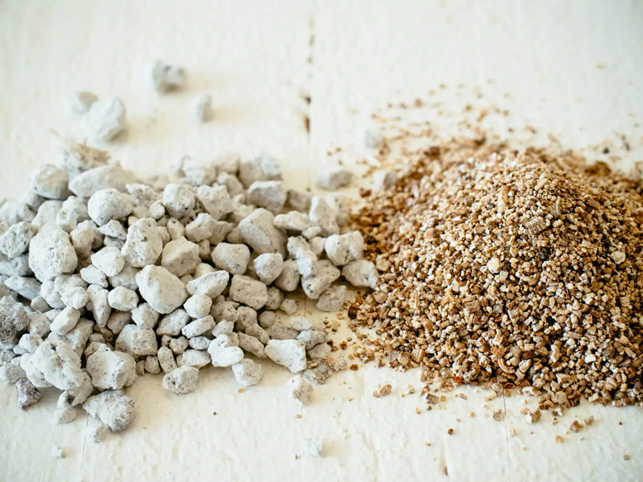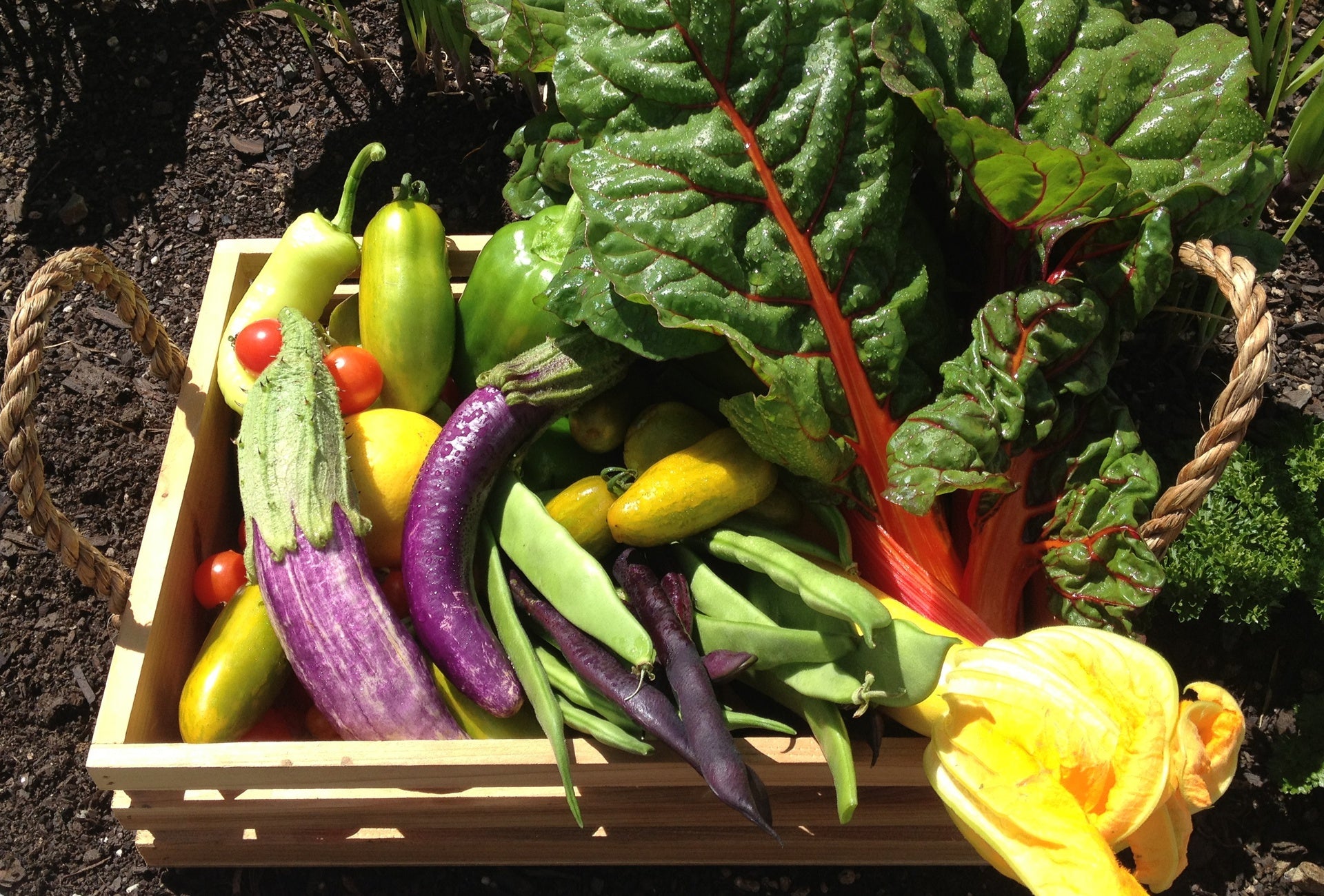
Perlite v Vermiculite
What is Perlite?
Nicknamed “volcanic popcorn,” perlite is made by heating volcanic glass to super high temperatures until it expands and “pops” into the white, porous, lightweight rock that resembles little Styrofoam balls.
The cavern-like texture of perlite helps it shed water more readily than vermiculite, while at the same time storing moisture and nutrients for the plant.
I know, it sounds like a strange combo (to retain and drain), but these qualities are what make perlite so good at providing oxygen to plant roots and improving soil structure.
What is vermiculite?
Like perlite, vermiculite is a naturally occurring mineral that expands when heated.
Scientifically speaking, it’s the name for a group of hydrated magnesium iron aluminium silicate minerals (phyllosilicates) that look like shiny, silvery gold to greyish brown flakes.
During the heating process (called exfoliation), the crude flaky mineral is expanded to many times its volume into a rough, hexagonal-shaped granule resembling a pebble, then further processed into coarse, medium or fine grades.
It is -
* lightweight, sterile, and inert
*non-combustible and non-reactive to all but the strongest acids
*non-toxic and safe to use
These characteristics give it unique insulating and energy-saving properties for a range of industrial and commercial uses, especially in construction and home and garden.
It is used for -
* special coatings and packaging, fire protection
* loose screeds and plasters, swimming pool liners
* potting mixes/potting soils
|
Perlite |
Vermiculite |
|
|
Ideal for seed starting or blending into potting mixes |
Yes |
Yes |
|
Approved for organic gardening |
Yes |
Yes |
|
Loosens heavy, compacted soil |
Best |
Good |
|
Provides drainage |
Best |
Good |
|
Retains moisture and nutrients |
Good |
Best |
|
pH level |
7.0 to 7.5 |
7.0 to 7.5 |
|
Decomposes in soil |
No |
No |
It is the same material used in gas fireplaces with ceramic logs to help the flame spread across the burner more evenly.
For horticultural use, vermiculite is found in four different grades, or granule sizes.
Perlite v Vermiculite: How do you know which to use?
Like perlite, vermiculite is an effective soil conditioner that can loosen compacted soil, provide drainage, and hold three to four times its weight in water.
But — and this is an important but — vermiculite is more compressible and less porous than perlite, giving vermiculite higher water-holding capacity when it is used as a planting medium.
Vermiculite acts more like a sponge in the way it soaks up water and holds on to it. Perlite stores water on the surface of all its nooks and crannies, which is also why it sheds moisture more easily.
Use perlite if:
- You want to loosen heavy clay soil.Perlite helps break up surface crusts and reduce soil compaction.
- You are repotting houseplants or plants that like to stay on the drier side.Shade-loving houseplants, succulents, and cacti do better with less water, so a potting mix amended with perlite helps prevent root rot and fungal disease.
- You garden in a wet or humid climate.Adding more perlite to containers or garden beds helps keep the soil from becoming waterlogged.
Use vermiculite if:
- You are starting seeds.Because vermiculite holds moisture better than perlite, it helps keep seeds from drying out during germination.
- You are repotting outdoor container plants.Potted plants tend to dry out faster outside, especially if they’re in porous containers like terra cotta or fabric pots. Adding vermiculite to your potting mix helps them retain moisture better.
- You garden in a dry climate.Adding more vermiculite to potting soil and soilless mixes conserves moisture in the growing media.


